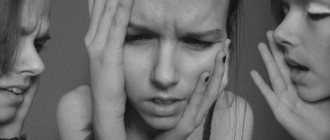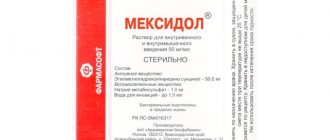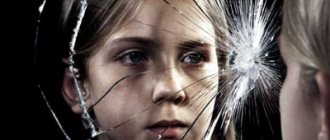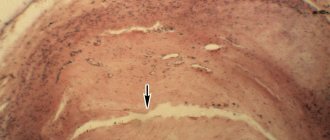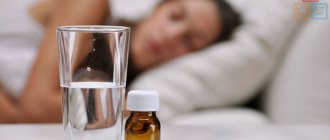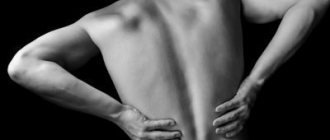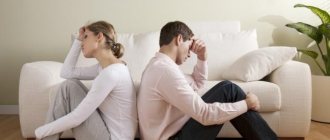Post-alcohol depression is a violation of a person’s emotional balance associated with the systematic drinking of alcoholic beverages. The consequences that this condition provides are the most unpredictable, since the alcoholic regularly experiences panic attacks. What it is? Why do they happen? This is anxiety from a hangover, which is acutely felt on an emotional level, depriving sleep and peace of mind. This feeling often occurs unexpectedly, but can pose a significant threat to those around the drinker. At first it’s scary with a hangover every other day, and with chronic alcoholism – every day several times at different times of the day.
During an attack of post-alcohol depression, there may be a jump in blood pressure and tachycardia
What is depression
Depression and bad mood should not be confused. Major depressive disorder is an illness characterized by prolonged and—this is the main difference—unreasonable depression of mood, mental and motor retardation, and an inability and unwillingness to enjoy natural things such as food or sex (anhedonia).
True depression is not only reactive (that is, a reaction to trouble, say, the death of a loved one), but also a consequence of some kind of illness, most often inflammation. Such people are sad all the time for no logical reason; the real reason may be a disorder of the intestinal microflora or a lack of daylight.
If you are in a bad mood because of a hangover, then strictly speaking, it is not depression. Although in everyday life this is what they call morning melancholy after a holiday.
Incorrect behavior while intoxicated: how to survive the consequences
If you have a feeling of anxiety as a result of “exploits” performed while intoxicated, do not worry, because everything can be solved. So what can you do:
- if you woke up in the morning and realized that you don’t remember anything;
First, calm down and bring yourself to your senses with the help of anti-hangover measures. Next, contact the people you had drinks with the night before. Surely they will help you reconstruct events that you do not remember. It’s good if it turns out that you didn’t do anything inappropriate. Although the fact that you don’t remember anything after drinking is a very bad “bell” that you need to pay close attention to;
- if your behavior while intoxicated was unacceptable.
If it turns out (or you probably remember yourself) that your behavior was incorrect, first of all, calm down and do not do anything until the hangover goes away. But don’t delay it either. Go to everyone you offended, etc., and apologize. There is no need to make excuses for yourself or humiliate yourself in front of these people. Choose the position of an adult and make it clear that you are very unpleasant about the current situation, you regret it.
Give your word that this will not happen again. But remember: it is not the word you give that is important, but the word you keep, because next time you may not have the opportunity to be understood and forgiven.
Source https://alko03.ru/opyanenie/pohmele/chuvstvo-straxa-i-trevogi.html
It seems impossible to fight against the fact that today any mental discomfort is called depression. Consumer society inevitably creates the idea that a good internal state is not only a good thing, but also a norm. Sometimes it seems that some are capable of committing 10-20 unseemly acts in one day, a couple of which are obvious sins, and then thinking about why this is so alarming is somehow uneasy. To drink something so beneficial from this?
In this regard, a psychotherapist differs from a priest in that he cannot simply and honestly say: “Repent, and sin no more!” However, some psychologists themselves do not always understand the situation and begin to engage in psychoanalysis when a good moral slap in the face would be appropriate.
Why does a hangover make you feel bad?
The so-called hangover depression, namely: anxiety, insomnia, bad mood for no reason, dysphoria (feeling of unhappiness, displeasure), feeling of guilt, even if you haven’t done anything - this is a common condition with a hangover.
In the morning we feel all this because during yesterday's drinking, the work of some neurotransmitters (substances that carry out all the work in the brain): dopamine and serotonin was disrupted - or the sensitivity of the brain receptors to these substances was deteriorated. This mechanism is described in more detail in a separate article.
The rules here are simple...
If you decide to drink and smoke, then do not ask questions about how depression and alcoholism are related. Think more about alcoholism, because of all the things it brings in the later stages, depression is the smallest “gift.” Compared to delirium and other psychoses, this problem is not even a problem. Then it will become more fun, unless of course you die first from cirrhosis or pancreatitis.
If you decide to give up alcohol and nicotine, then don’t think that the path to quitting goes through heaven, that you will immediately feel better - physically and mentally. At first it will be very difficult. A different state of affairs would completely deny the need for narcology.
Breaking bad habits is never easy
Do not look for direct connections between all your negative states and giving up alcohol or tobacco . There is no such direct sequence when someone quit smoking and panic attacks began. Currently, PA is identified as a separate syndrome, which is not associated with vegetative crises. This disorder has almost completely left the field of neurology and entered the field of psychotherapy. Its etiology, as is often the case with mental disorders, is not completely clear. However, some connection with withdrawal syndrome can be traced. It is rightly believed that it is impossible to alleviate the patient’s condition completely. Symptoms are relieved with the help of tranquilizers, and medications are prescribed to support the cardiovascular system and the body as a whole. However, some negative experiences and conditions must be present for some time. If someone quits smoking, depression is a logical reminder that smoking only causes harm.
How to treat depression with a hangover
The following can improve your mood during a hangover:
- bath (if there are no heart problems)
- cocoa (contains a range of antidepressants)
- chocolate
- non-alcoholic beer (hops are a natural tranquilizer)
- non-alcoholic energy drinks
- exercise or sex
- seafood
- pyridoxine (vitamin B6)
- novo-passit
- Negrustin
- person
- Eleutherococcus tincture (20–40 drops in the morning before meals)
Read interesting and funny articles on our blog! * How the sommelier specialization was formed.
* Gatherings in the barn. Story.
* Rules for choosing low-calorie wine.
If you feel guilty about what you did yesterday, notice that these are not rational thoughts. Most likely, everyone is too busy with themselves to think about you. Everyone wakes up and thinks: “It’s terrible what I said yesterday.” No one wakes up thinking, “It’s terrible what he said yesterday!”
Just don’t forget about general detoxification measures: just lifting your mood won’t help for long. A hangover must be fought on all fronts, cleansing the body of alcohol residues and toxic substances formed from alcohol. When you do this, the hangover will go away along with the hangover depression. Some of the remedies listed above have not only an antidepressant effect, but also a detoxifying effect. For more information about the fastest and most effective detoxification measures, read the article “How to get rid of a hangover.”
Of the anti-hangover remedies, according to manufacturers, they help cope with depression: DrinkOFF, Piel-Alco, Get Up, Morning Care, Alka-Prim, Guten Morgen, Vega +.
Subscribe to our YouTube channel!
Psychological cause of anxiety: solutions
What should you do if you tried to solve the problem with alcohol, but it had the opposite effect? On the one hand, remember this lesson and don't repeat it again. On the other hand, of course, in addition to learning a lesson, you need to alleviate the condition:
- carry out detoxification measures as indicated above;
- try not to get hung up on painful thoughts and feelings;
- switch and distract attention from the painful state of mind. For example, you can read a book or watch a movie (choose a comedy), go for a walk (but keep in mind that if you have a hangover, you should avoid physical activity);
- do not be alone with your thoughts, avoid loneliness. It’s good if a loved one is nearby. You can invite your friends, but do not lead your communication to another drinking session;
- think about the positive things in your life, such as children or achievements at work, a loving wife (husband), an exciting vacation you are planning for the summer, etc. you will see that there are a lot of positive things in your life, do not forget about it;
- don't blame yourself. Every person has the right to make a mistake, so you shouldn’t beat yourself up for it;
- think about how things could have been worse;
- find the positives. In any situation, no matter how fatal it may seem, you can find something good. Try to find the same thing in yours - and you will notice how you immediately feel better.
In the future, when the hangover passes and everything calms down a little, you can seek help from a psychologist or psychotherapist. Or try to solve the problem that is gnawing at you yourself:
- acknowledge the fact that there is a problem;
- think about what you personally can do to solve it; whose help you may need to enlist;
- draw up an action plan to solve the problem;
- start implementing this plan step by step.
This will allow you to learn how to solve problems and not turn to alcohol for help in difficult situations.
How is alcoholic depression treated after binge drinking?
It will take longer to get rid of depression after a long binge than after a one-time binge. Try not to drink alcohol for a couple of months - and psychological problems should go away. If your mood continues to be bad without any objective reasons, consult a doctor. Don’t be shy, now there are many drug treatment centers where you can be observed anonymously, and advanced depression will bring you much more unpleasant moments than going to the doctor.
Among the medications that will help cope with depression after binge drinking are: glycine, afobazole, finlepsin (carbamazepine), Grandaxin or Mebicar. The doctor may also prescribe a modern antidepressant. Don't be afraid to take them: they are practically harmless, have few side effects and no, they are not addictive.
To restore the nervous system after a binge, it is recommended to take a course of any multivitamins - the main thing is that they contain vitamins B1, B6 and C. Alternatively, you can take sports vitamins: for example, Animal Pak from Universal Nutrition.
They contain essential vitamins in shock doses, microelements, enzymes and adaptogens (ginseng). Subscribe to our YouTube channel!
Are antidepressants and alcohol compatible?
If you already have depression (not from a hangover, but due to a health condition), if your doctor has prescribed a course of antidepressants, then alcohol is prohibited for you until the end of the course of treatment. Almost all antidepressants are categorically incompatible with alcohol. Open the instructions for use of your antidepressant and read the list of dangerous side effects - in the presence of alcohol, the possibility of these side effects increases several times.
It is permissible to drink alcohol in hangover-free doses (a glass of vodka or cognac once a week) only while taking antidepressants based on ademetionine and St. John's wort.
Read a separate article for a detailed explanation of why you should not drink alcohol at all while taking other antidepressants. Subscribe to our YouTube channel!
Can alcohol help with depression?
It turns out that moderate alcohol consumption is itself an antidepressant. In 2013, a study was completed in Spain in which 5,500 volunteers took part. The results showed that drinking 5 to 15 grams of pure alcohol per day reduced the risk of depression. The best results were among those who drank wine in quantities of 2 to 7 glasses (150 ml) per week.
However, those who drank more than this, on the contrary, had a much higher risk of developing depression than abstainers.
To reduce anxiety and irritability, you can take one of the mild herbal sedatives: valerian (in any form), motherwort (in any form), sedative herbal infusions from the pharmacy. For a wider list of sedatives that toxicologists recommend for a hangover, read the article “How to fall asleep with a hangover”: from it you will also learn which sedatives are prohibited for a hangover and why hangover insomnia should not be tolerated at all.
Article published: 2019-01-01
This article was last updated: 02/28/2020
Didn't find what you were looking for?
Try using search
doctor or administrator.
Read the dictionary of terms.
Drug treatment of pathology
To treat a panic attack, you can take a mixture of water and motherwort yourself.
To treat a panic attack, you can take a mixture of water and motherwort/valerian dissolved in it. Take 10 drops of tincture for one glass of liquid. But here it is worth remembering that such a remedy only helps relieve a real attack, but is not a remedy.
To treat PA, specialists first find out why such attacks begin with a hangover, and then, in the case of an undiagnosed chronic disease, they often prescribe antidepressants belonging to the category of selective serotonin reuptake inhibitors. These are Zoloft, Fevarin, Cipralex, etc.
